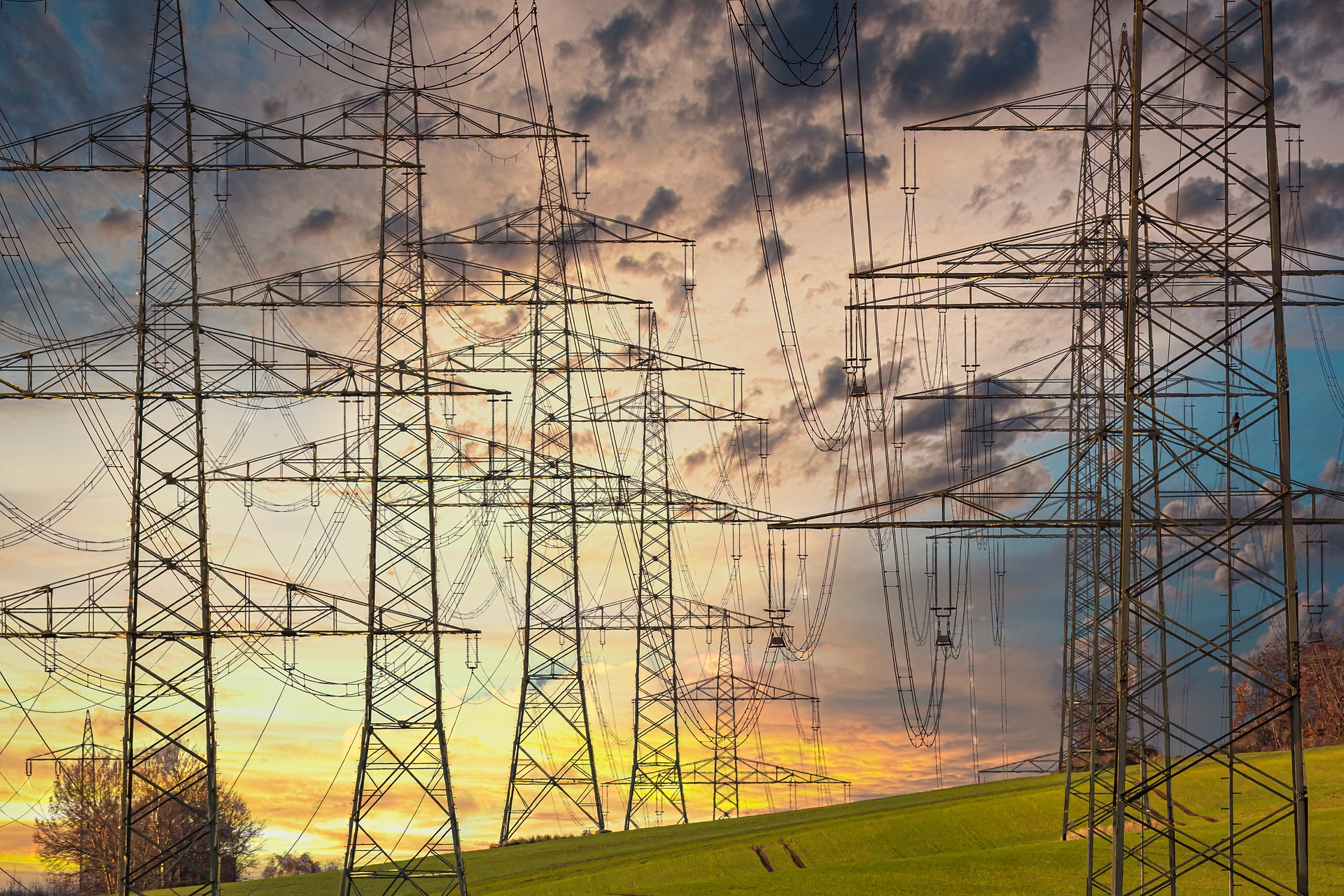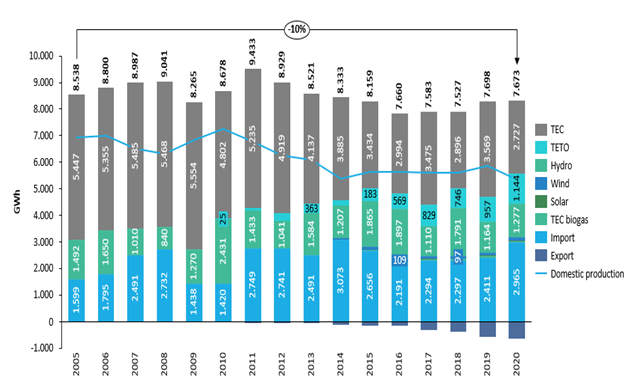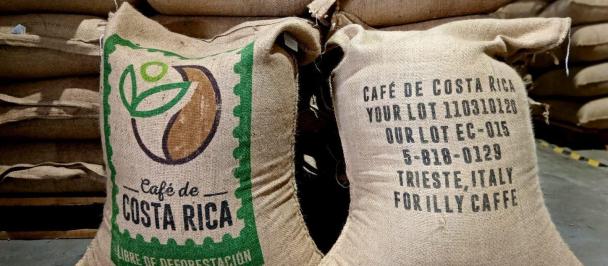The impact of the global crisis on the energy and agriculture sectors
November 22, 2022

- The effect of global crisis on people and communities in North Macedonia
The conflict in Ukraine has produced an alarming number of cascading effects to the global economy already challenged by the impact of climate change, the Covid19 pandemic and a range of other interconnected uncertainties. This assessment was outlined in the first policy brief of the Global Crisis Response Group, which seeks to ensure a coordinated global response to the challenges of food security, energy and financing.
As the UN Development Agency in North Macedonia, we decided that we have a role to play in assessing the impact of the global crisis on people and communities in North Macedonia. To do so, UNDP organized a research assessment study that focused on the impact of the global crisis on the municipalities in the country, with a particular emphasis on their service delivery amid the crisis. We conducted that assessment by teaming up with two university professors, and the key findings can be accessed on this link.
In addition to this, UNDP in collaboration with PwC North Macedonia conducted a research study on the impact of the multidimensional crisis on the energy and agricultural sectors in North Macedonia (August-September 2022). As our Resident Representative, Mr. Armen Grigoryan states ‘UNDP has a particular interest in identifying the uncertainties of today, and how they impact citizens and communities in North Macedonia. This is the reason why we have pursued an impact assessment report on the impact of the global crisis on the energy and agriculture sectors in the country. We believe this report can give us a path forward, something that policymakers could follow, design activities around it, and encourage partners to follow’
- Generating actionable intelligence, key findings from our research
The study we jointly pursued aimed to provide an overview of the conflict in Ukraine and offer a path forward, by outlining potential solutions, innovations, and local policy recommendations for the public and the private sector. The study focused on the availability of food and energy, as well as the impact on the prices of primary commodities, such as gas, fuel, wheat, barley, and fertilizers – but also to review the socio-economic impact of the crisis with a particular emphasis on the most vulnerable communities.
As soon as the post-pandemic recovery began, it was cut short, as the war in Ukraine sent shockwaves across Europe including North Macedonia. It resulted in reduced accessibility of certain products (including food and energy), unpredictable price increase, rising long-term inflation pressure and increasing the risk of social vulnerability as well as slowing down the movements of goods and services, i.e. supply chain disruptions. “In responding to the current food and energy crisis, countries should not lose sight of their long-term goals (eg. economic stability, sustainability agenda). As we look to limit the severity of the short-term crises, we cannot jeopardize long term objectives, or at least we need to make sure we do not worsen them,” said Agnieszka Gajewska, PwC Global Government and Public Service Leader, addressing the audience on the 21st MSE Conference.
In order to contribute to the public discourse and policy making in our community, we pursued evidence-based study with the goal of gathering relevant insights from the private and the public sector. In this process, we developed a short questionnaire distributed to companies and institutions responsible for the agricultural sector or companies which have been impacted by the energy crisis, as well as energy regulators and relevant public institutions. The primary research confirmed the adverse impact of the Russian-Ukrainian conflict on the private and public sector in North Macedonia and demonstrated the need for enhancing support and introducing new measures to mitigate the effects of the conflict. The survey respondents argue that it is very important for the government to support the private sector on one hand, but also to focus on few very important infrastructure projects to diversify and ensure security of energy supply as well as to ensure the support for investments in the main food raw materials and ingredients.
- The energy sector
In the context of the energy crisis in North Macedonia, the study provides an analysis of the overall production mix and imports in the last few years. Energy import dependence in 2021 was well above 65%, which is an increase of over 20% in the last 15 years. The total domestic demand of natural gas and other fuel products is covered by imports. Natural gas is almost 100% imported from Russia. According to the 2021 report from the Energy and Water Services Regulatory Commission, the participation of coal power plants in 2021 is around 40%, while the share of natural gas thermal power plants (primarily TETO AD Skopje) was almost 29%, which is close to the share of the hydropower plants (27.5%) in the total annual energy production. The increase in the production of electricity from natural gas amplified the dependence on imports, i.e., North Macedonia imports more than 50% of its electricity (either as a finished product or as an input in the production of electricity). Import is expected to further increase in 2022, considering that additional quantities of coal for TEP Oslomej operations are imported, and fuel is imported for the operation of TEP Negotino. Except for natural gas, North Macedonia does not rely on energy imports from Russia.

Source: State Statistics Office, team analysis
It is evident that the conflict has significantly contributed to the rise of energy prices. Since the beginning of the conflict, prices continued to rise reaching 700-800 EUR/ MWh in July and August 2022. Both the prices of natural gas and other fuel products increased as a result of the conflict, i.e. an increase of 45% and 56% respectively, in the first 6 months of 2022.
The shortcomings of the domestic energy sector have been revealed: insufficient production capacities and their reliability, energy dependence, weak supply diversification, and long-term CAPEX underspending in the sector. The energy expert Aleksandar Dedinec, who contributed to the study, stated that one of the biggest changes that have been made to alleviate the energy crisis is the introduction of block tariffs for households. He also mentioned the reduction of the VAT for electricity and oil derivatives, amendments to the Rulebook on renewable sources for the installation of photovoltaic systems, the industry using the electricity from preferential producers, transfers of budget funds to the accounts of AD ESM and AD MEPSO for procurement of imported coal that will be used for the operation of TE Oslomej, and payment of the costs incurred by withdrawing electricity from the European system.
Some of the proposed short-term measures for mitigating the risks on the energy sector are to increase the domestic production of electricity, to simplify the procedures for the construction of photovoltaic systems, to provide subsidies for public enterprises to install photovoltaics, to adopt the amendments to the Law on Energy and the Law on Construction, to extend the measure by which households pay 5% instead of 18% VAT for electricity, thus protecting the most vulnerable, to run campaigns for the rational use of electricity in households and services sector, as well as to sign an interconnection agreement between natural gas operators in North Macedonia and Bulgaria, which will diversify the access to natural gas markets and decrease the dependence on the Russian supply. It is expected that the price of electricity will continue to rise and will depend mostly on the domestic hydro potential, the production from renewable energy sources at EU level, as well as on the winter weather conditions.
North Macedonia has set very ambitious climate targets ahead. Country's perspective in turning to green energy should not be overlooked as an argument. Under the Paris Climate Agreement, the country is committed to reducing greenhouse gasses by 52 percent and since the country also has to shut down the thermal power plants that are coal fired by the end of the decade, that puts the country in a very difficult situation. Especially at a time when energy dependence also affects geopolitical shifts and realignments. Therefore, what makes a difference in positioning of the country regarding the energy policy is that large energy projects financed by the European Union or private companies are underway or already completed, and new ones are being announced. With the first solar plant Oslomej 1 in phase of testing, expected to be fully operational this winter, the Wind Park 1 in Bogdanci, already operational, and the two big projects on the way, Oslomej 2 and second wind park in Bogdanci, puts the country in a good position to pursue a green energy transition.
4. The agriculture sector
Given the importance of Russia and Ukraine to global markets for agricultural supply and food trade, the Russian-Ukrainian conflict, and policy responses by the world economic leaders, have significant and potentially long-lasting implications for producers and consumers. Prof. Dragi Dimitrievski, who was part of the agricultural sector team, stated that the Russian invasion of Ukraine has a vast indirect impact on the global agricultural sector, considering the fact that these two countries solely provide 27% of wheat, 23% of barley, 53% of sunflower oil and seeds and 14% of corn in global trade. Furthermore Russia, in 2020, accounts for more than 15% in global exports of fertilizers – being the world's largest exporter of nitrogen fertilizers, the second largest supplier of potassium fertilizers, and the third largest supplier of phosphorus fertilizers. As he further stated, the impact for North Macedonia is even greater, given that in the Law on Agriculture and Rural Development, wheat and barley are recognized as strategic crops for our economy and that 70 to 90 thousand tons of the artificial fertilizers that are used in domestic agricultural production are produced in Ukraine and Russia.
Furthermore, the study reveals the fact that the cost of production inputs in June 2022 have increased by 25.8% compared to the same period last year. The biggest impact on the increase comes from: energy prices, which increased by 50.7%, and mineral fertilizers prices, which increased by 65.9%. In order to support domestic production of wheat, barley, and sunflower, and reduce the costs of fertilizers and fuel, the Government has provided financial aid and intervention measures, as defined in the Program for the Implementation of an Intervention Fund for Agriculture. Based on the survey, the current government measures are effective, and they are reducing the direct and indirect negative effects of the crisis. However, further improvement of the coordination and cooperation between the institutions would increase the efficiency and effectiveness in the process of planning and implementation of the support measures.
Figure 2: Agricultural input price indices (2015=100)
|
|
VI 2021 |
XII 2021 |
VI 2022 |
VI 2022 / XII 2021 |
VI 2022 / VI 2021 |
|
Total input |
117.0 |
123.5 |
147.2 |
119.2 |
125.8 |
|
Input 1 (funds currently spent in agriculture) |
117.3 |
123.9 |
148.5 |
119.9 |
126.6 |
|
Energy, fuels, lubricants |
149.4 |
162.4 |
225.1 |
138.6 |
150.7 |
|
Mineral fertilizers |
97.7 |
109.8 |
162.1 |
147.6 |
165.9 |
|
Plant protection products |
102.3 |
102.3 |
107.1 |
103.0 |
104.7 |
|
Animal feed |
103.3 |
107.4 |
112.6 |
104.8 |
109.0 |
Source SSO: Agricultural price indices, June 2022, Announcement
Based on the analysis and assessment performed Dragan Davitkov, Partner at PwC North Macedonia, concludes that “At a time of crisis of this scale, where we are facing the challenge of meeting the basic human needs of food and energy consumption, the focus should be shifted to alternative ways of procurement and alternative products. We need to strengthen public-private partnerships to provide joint solutions, at the same time protecting the most vulnerable by providing for their basic needs, at affordable prices.”

 Locations
Locations



